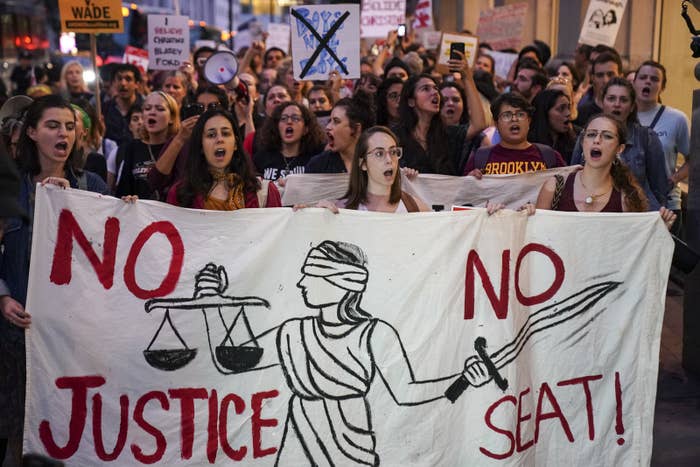
Why exactly have the last two weeks been so bad? That sounds stupid, and obviously there are the basic dueling premises that a victim of sexual assault won’t be believed, or else that a man’s reputation will forever be damaged by something he did not do, anchored by the eternal stakes of the Supreme Court.
But the discourse of the last two weeks has expanded far beyond the basic parameters above and into questions of class, education, how rumor works, how alcohol functions in the human body, why people don’t report the bad things that happen to them, how high school was, how Yale is, how memory can change or remain or never form. There’s the allegation and the people involved, and then there’s the rest of us, including those who've experienced sexual assault firsthand. And the rest of us agree these last few weeks have been awful, carrying a searing quality you can’t quite escape.
And where does that come from?
One component is the way the last two weeks have loosened up people’s minds — X thing that you’ll never forget but haven’t thought about in a long time, Y reaction you relate to even if you’re actually quite different from the person who’s having it before you. Specifically, the Kavanaugh news is dredging up all kinds of high school and college memories, for all kinds of people.
It seems like everyone I talk to, everything I read, has this dimension of that formative experience coming back to the fore, either because some aspect of the Kavanaugh story (the story of Renate, for instance, or that way you might have hung out on a summer night after sports practice or a detail about blackouts) hits you square in the chest, stops you standing, or else because none of this does — that is, these stories throw into relief how much your high school experience was unlike theirs — and then, suddenly, because your understanding has intersected with this fraught thing, or because it hasn’t, you’re falling back into what you haven’t thought about in years.
The other component, I think, is the uncertainty of this all: the gap between what we know happened in 1982 and what we are unlikely to ever know.
Outside of additional interviews, we’re unlikely to learn much more about what happened in 1982. That seems to be why so much of the Washington discussion has been about process, with Democrats mostly pushing for the FBI investigation, and Republicans mostly emphasizing the document process, rather than outright accusing Kavanaugh or Ford of misremembering or lying.
That gap also seems to be why our minds have so much room to roam, to identify with Christine Blasey Ford or Brett Kavanaugh — even with people who you hear talking and think, “But you’re nothing like that,” in the case of the latter — to fill in what’s missing and to find all kinds of things waiting.
Threaded through so much of this is the implicit question: Well, wouldn’t you? Wouldn’t you have told someone/no one? Wouldn’t you be angry if you were accused of something you didn’t do? Wouldn’t you know if you’d assaulted someone? Wouldn’t you always remember who was on top of you, who put his hand over your mouth?
But the decision this situation asks of us is narrow and singular: Which one do you believe? Whatever process, whatever your experience, whatever next thing that comes, it is the same, and the way things are going, it is unlikely to change. Which one do you believe?
I know who I believe, and you probably do, too. But to believe one is to disbelieve the other, which leaves us implicated in the decision; there’s no getting out of this situation.
So until this ends, at least, we’ll be trapped in that unfirm, translucent space where you cannot help but remember, and reconsider if you misunderstood what you thought you knew.
